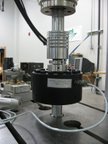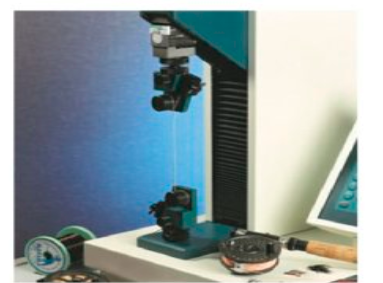Tensile Force: Understanding the Pulling Power in Materials
Tensile force is a fundamental concept in materials science and engineering that refers to the force exerted when an object is pulled or stretched.
This pulling force causes tension within a material, leading to elongation along the axis of the applied force.
Understanding this force is crucial for designing structures, selecting materials, and ensuring the safety and reliability of various products and components.

What is Tensile Force?
Tensile force is the external load or pulling force applied to a material that tends to elongate it in the direction of the force. It is one of the primary types of mechanical stress that materials experience, along with compressive and shear forces. When a tension force is applied to an object, internal stresses within the material resist the elongation.
Tensile Force vs. Tensile Stress
While tensile force and tensile stress are related concepts, they are not the same:
Tensile force is the external pulling force applied to a material, measured in units of force like Newton (N) or pound force (lbf).
Tensile stress is the internal force per unit area that develops within the material in response to the applied tensile force. It is calculated by dividing the tensile force by the cross-sectional area of the material and is expressed in units of pressure like Pascals (Pa) or pounds per square inch (psi).
Measuring
Tensile force is typically measured using specialized equipment called tensile testing machines or universal testing machines. These devices apply a controlled, increasing tensile force to a material specimen until it breaks or reaches a predetermined point. During the test, the applied force is recorded as a function of the elongation of the specimen. The calibration of these machines is typically done by following either the ASTM E4 or ISO 7500 standard.
Importance in Engineering and Design
Understanding this force and its effects on materials is crucial in various fields:
Material Selection: Engineers use tensile force data to select appropriate materials for specific applications, ensuring they can withstand the expected loads without failure.
Structural Design: Knowledge of these forces helps design structures that can safely support loads and resist deformation in construction and infrastructure projects.
Product Development: Manufacturers consider tensile forces when designing products to ensure durability and reliability, especially in industries like automotive and aerospace.
Safety Engineering: Understanding the tensile forces that materials can withstand is critical for designing safety-critical components like seat belts and airbags.
Quality Control: Tensile testing verifies the mechanical properties of materials and ensures they meet specified standards.
Everyday Life Examples
Tension forces are present in many everyday objects and situations:

Testing the strength of fishing line
The cables of elevators and suspension bridges experience significant tensile forces.
Ropes and chains used for lifting or towing are subjected to tensile forces.
The frame of a bicycle experiences tensile forces when a rider pedals.
Clothing fabrics undergo tensile forces when stretched or pulled.
Conclusion
Tensile force is a fundamental concept in materials science and engineering that is crucial in designing, manufacturing, and testing various products and structures. Engineers and designers can create safer, more reliable, and more efficient products and systems across various industries by understanding and accurately measuring tensile forces.
Morehouse Instrument Company can calibrate force measuring instruments, which can then be used to calibrate tensile force machines.
Morehouse Capability
Morehouse Primary Force Calibration laboratory can perform ISO/IEC 17025 accredited calibration with primary deadweight standards from 5 gf lbf to 120,000 lbf (0.049 N to 533.787 kN) with Calibration and Measurement Capability (CMC) typically better than 0.002 % of applied force in compression and tension.
Our secondary standards follow our deadweight capability and offer calibrations up to 2.25 million lbf (10 MN) with Calibration and Measurement Capability (CMC) that is typically better than 0.01 % of applied force in compression.
Our secondary standards follow our deadweight capability and offer calibrations up to 1 million lbf (4.45 MN) with a Calibration and Measurement Capability (CMC) that is typically better than 0.01 % of applied force in tension. Our force calibration lab features the capabilities below.
More Information about Morehouse
We believe in changing how people think about force and torque calibration in everything we do.
This includes setting expectations and challenging the "just calibrate it" mentality by educating our customers on what matters and what causes significant errors.
We focus on reducing these errors and making our products simple and user-friendly.
This means your instruments will pass calibration more often and produce more precise measurements, giving you the confidence to focus on your business.
Companies around the globe rely on Morehouse for accuracy and speed.
Our measurement uncertainties are 10-50 times lower than the competition.
We turn around your equipment in 7-10 business days so you can return to work quickly, saving you money.
When you choose Morehouse, you're not just paying for a calibration service or a load cell.
You're investing in peace of mind, knowing your equipment is calibrated accurately and on time.
Contact Morehouse at info@mhforce.com to learn more about our calibration services and load cell products.
Email us if you ever want to chat or have questions about a blog.
We love talking about this stuff.
Our YouTube channel has videos on various force and torque calibration topics here.


